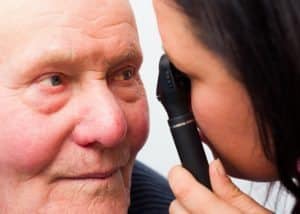What Seniors Receiving Homecare Should Know About Age-Related Eye Diseases
Homecare Broomall PA
For seniors who are reaching 60 years of age, changes in vision are probably getting more noticeable. These changes can be disconcerting for some but it’s important not to ignore them. Seeing an ophthalmologist early on will gives seniors the best chance of having optimal vision health. Besides that, the earlier age-related eye diseases are diagnosed, the more effectively they can be treated. So whether seniors are beginning to have symptoms of eye disease, or they want to keep their eyes as healthy as possible as they age, they should see an ophthalmologist.
The Difference Between an Ophthalmologist and Optometrist
While seniors who are receiving homecare can certainly see an optometrist for routine vision exams, an ophthalmologist has more training when it comes to actually diagnosing and treating diseases of the eye. Since ophthalmologists are considered medical doctors, they can also write prescriptions for medication as well as do certain types of surgeries. Some vision professionals state that everyone by the age of 40, regardless of whether or not they are having symptoms, should see an ophthalmologist for a comprehensive eye exam.
Common Age-Related Eye Diseases
Seniors over 60 years of age are especially susceptible to eye disease. Here are some of the most common age-related eye diseases:
* Age-related macular degeneration – This eye disease is caused by a deteriorating macula, an area inside the retina. As this disease becomes advanced, it can cause loss of central vision.
* Cataracts – This eye disease is the leading cause of blindness throughout the world and is caused when protein in the eye starts clumping together resulting in the lens of the eyes becoming cloudy and interfering with vision.
* Diabetic retinopathy – For seniors who have diabetes, this eye disease occurs when blood vessels in the retina swell and leak fluid or close off completely.
* Glaucoma – When fluid pressure in the eye rises, the optic nerve becomes damaged resulting in vision loss.
Other eye diseases that can be common for seniors include dry eye, retinal detachment, corneal disease, and presbyopia.
Symptoms of Age-Related Eye Diseases
Since some age-related eye diseases have no symptoms, seniors should stay up to date with their vision exams. While this might be difficult for seniors receiving homecare, it is very important because the earlier eye disease is detected, the easier it can be treated.
Seniors should be aware of these symptoms which can indicate onset of eye disease:
* Floaters or spots in field of vision
* Eye pain that comes on suddenly
* Double vision
* Blurry vision in one or both eyes
* Blind spots
A family caregiver should be attentive if they notice seniors with excess tearing, abnormalities of the eyelid, unusually red eyes, or eyes that look misaligned.
For seniors who have not ever seen an ophthalmologist, it is important they schedule an appointment.
If you or an aging loved one are considering Homecare Services in Broomall, PA, please contact the caring staff at True Direct Home Health Care today.
- How Home Health Providers Offer Education Amidst Physical Health Changes - March 5, 2024
- Spring Activities for Seniors - February 21, 2024
- How to Help an Older Loved One with Cataracts? - February 6, 2024

